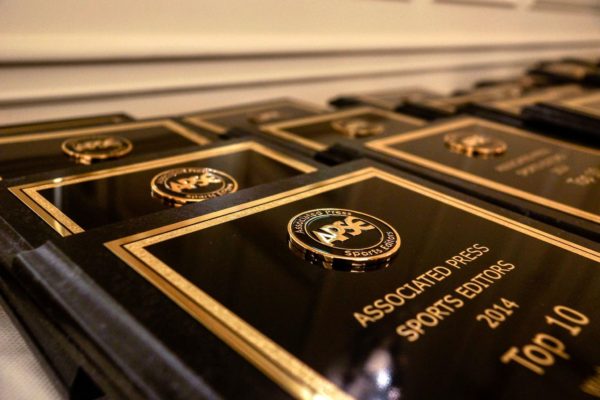When were you APSE president?
1989-90, with the convention in Boston.
What was your best memory of APSE?

This organization was a brotherhood and sisterhood for me. Its members provided a wonderful network of professional and personal support, and I feel passionately protective of it. So many of the best parts of my career — and even my adult life — came from APSE, and I remain deeply interested in every part of it. My term as president was a fun year, filled with ups and downs, but the friendships and contacts I developed during those years and have maintained since are irreplaceable. I was blessed to be a tagalong among the men and women who changed the face of sports journalism and an entire industry — through coverage, enterprise, staff development and just plain creativity — and enriched lives. So many years later those times are vivid in my memory and precious in my heart.
What was the highlight of your time as a sports editor?
I was a sports editor for 14 years in Orlando, a time of great change. The most exciting development for me was the emergence of the Orlando Magic and professional sports in Orlando. This gave us a signature as a sports community and thus made being a sports editor more fulfilling. But I’m also proud of a lot of the coverage and enterprise we produced before and after the introduction of the Magic. We tried hard and stole ideas with the best of them.
What would you do differently today as a sports editor?
Ask more questions and listen more closely to the answers. I was a terrible autocrat who sought to lead by example. That didn’t work so well then and wouldn’t work at all today, especially in the sports world.
How can APSE serve its members better?
By broadening its scope and educating its members in disciplines far away from ink on paper, teaching them to listen to their markets, deliver news that has brand-writing importance and — a hard one — to be more humble. Sports editors (yours truly included) have a tendency to be know-it-alls. Sometimes we aren’t. Helping each of us learn that is important.
What advice do you have for current sports editors?
Pretty much what I’ve already said. Listen to your readers and not just your brain. Swallow your pride. You can succeed doing that, too. It’s good that we’ve learned to lean on our brethren and share information now. Everything is global, and only a few stories truly are unique and proprietary. We have to be able to identify those and keep them close to our souls. Everything else is an open market.
What is your current occupation?
I’m an editor, of The Sentinel-News and SentinelNews.com in Shelbyville, Ky. This is my home county, and though our paper is small, we try to do some good work that makes a difference. And we have great penetration!
Do you have any plans for the future?
That’s pretty open-ended. I like to write and will pursue that in every way possible. I can’t see doing what I do now for the next 10 years, but I do need to pay bills. I have young children!
Editor’s Note: In conjunction with APSE’s partnership with Indiana University’s National Sports Journalism Center, a new Hall of Fame will permanently honor winners of the Red Smith Award as well, secondarily, past APSE presidents. As a part of that effort to honor those who built APSE, past presidents will be invited to the 2010 convention in Salt Lake City. Leading up to the convention, past presidents will be periodically profiled here.





